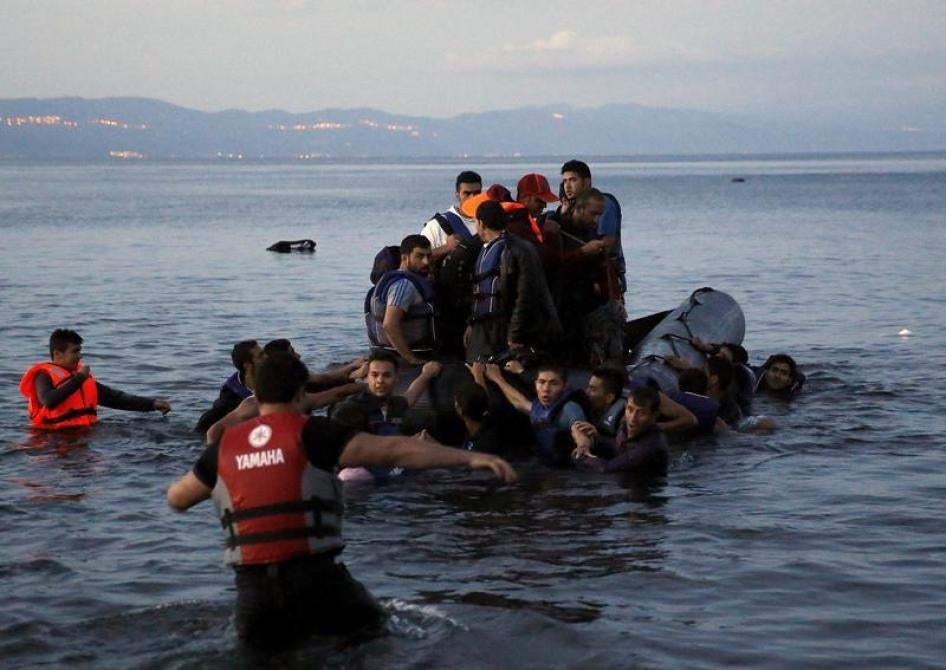“When I was in the middle of the sea, the thing that scared me the most was water. I don’t know how to swim.”
Samira (pseudonym), an 8-year-old Syrian girl, told me that earlier this month soon after she’d made it to the Greek island of Lesbos from Turkey in an overcrowded inflatable boat. She said nothing could ever scare her again after that. Samira was traveling with her uncle – her father died in Syria – with one goal: reuniting with her mother in Germany.
Too many other people haven’t survived the trip. Almost 100 people have died or went missing in the last 10 days, in six different shipwrecks between Greece and Turkey. Among them at least 19 babies and children, including five who drowned yesterday.
As the number of people crossing the Aegean Sea has increased dramatically, so too have the deaths. Last Friday, the International Organization for Migration said 227 women, men, and children have died in the Aegean Sea since the beginning of the year, a significant jump from 73 people missing or dead recorded last year.
Europe has focused for too long on securing borders and limiting arrivals instead of establishing more safe and legal channels for people to seek asylum or find refuge in the EU without resorting to dangerous routes and unscrupulous smugglers. The EU-wide pledge to resettle 22,000 recognized refugees, currently housed outside the EU, and national programs like those in Germany and the UK fall far short of the need and could be bolstered. More options for family reunification would also provide expanded safe and legal routes.
Four million Syrian refugees live in countries bordering Syria. UNHCR, the UN refugee agency, said on Friday that loss of hope, deepening poverty, limited livelihood opportunities, aid shortfalls, hurdles to legal residency, scant education opportunities, and insecurity are motivating many to try for Europe.
More than 360,000 migrants and asylum seekers have reached Greece by sea this year, with thousands arriving each day on the Greek islands, where the inability of authorities to provide the basics even for the most vulnerable has created a humanitarian crisis. There is not enough food, shelter, healthcare, and even toilets to go around.
Greece needs more help from the European Union and fellow EU governments in doing search and rescue in the Aegean, and in handling the unprecedented number of people coming to its shores. But the European Union also urgently needs to examine what it should be doing to help a girl like Samira reach a place of safety, and reunite with her mother, without having to risk her life on an unseaworthy vessel.










